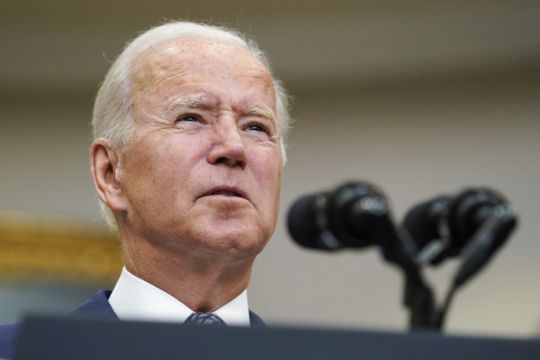Democratic leaders in the House of Representatives have compromised with moderates to muscle US President Joe Biden’s 3.5 trillion dollar (£2.5 trillion) budget blueprint over a key hurdle.
The 220-212 vote was a first move toward drafting the rebuilding plan this autumn, with the narrow outcome, in the face of unanimous Republican opposition, signalling the power a few voices have to alter the debate as well as the challenges ahead.
From the White House, Mr Biden praised the outcome as “a step closer to truly investing in the American people”, adding at a news conference that he had called to congratulate House leaders for the work.

Tensions flared during a turbulent 24 hours that brought the House to a halt as a band of moderate lawmakers threatened to withhold their votes for the plan. They were demanding the House first approve a nearly 1 trillion dollar bipartisan package of other public works projects that had already passed the Senate.
Backed by the White House, Speaker Nancy Pelosi huddled privately with lawmakers and leaders to engineer a solution.
In brokering the compromise, Ms Pelosi committed to voting on the bipartisan package no later than September 27, in an attempt to assure lawmakers it will not be left on the sidelines. The speaker has set a goal of passing both by October 1.
MsPelosi told her colleagues before the vote that the legislation would lead to a federal investment on par with the New Deal and the Great Society.
She brushed aside the delays, saying “that’s just part of the legislative process”, according to an aide granted anonymity to discuss a closed-door caucus meeting.
“Not only are we building the physical infrastructure of America, we are building the human infrastructure of America,” Ms Pelosi said on the House floor.
With Republicans fully opposed to the president’s big plans and arguing that Congress should be focused instead on the crisis in Afghanistan, the Democratic leaders have just a few votes to spare.
That gives any band of lawmakers leverage that can be used to make or break a deal, as they are in position to do in the weeks to come as moderates and progressives draft and vote on the broader 3.5 trillion dollar package.







